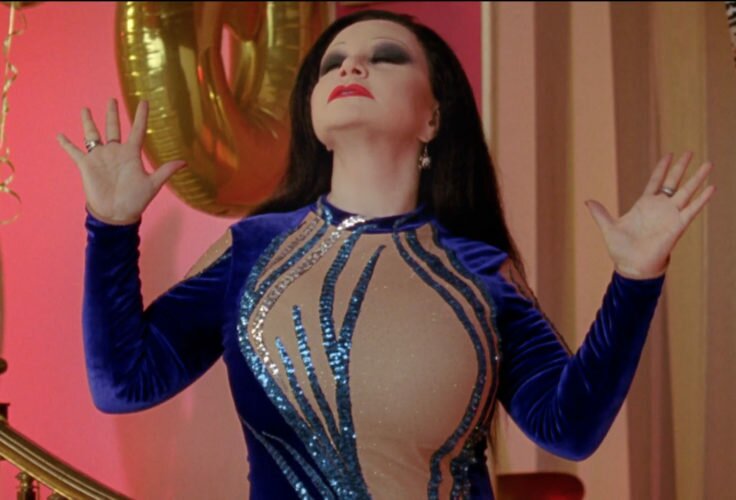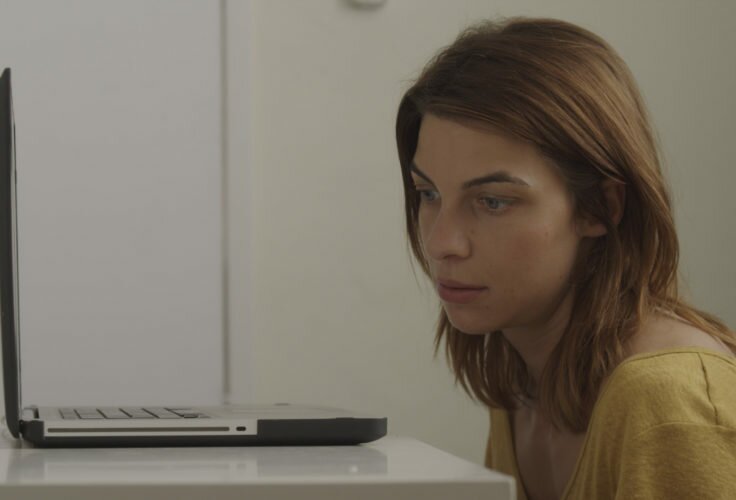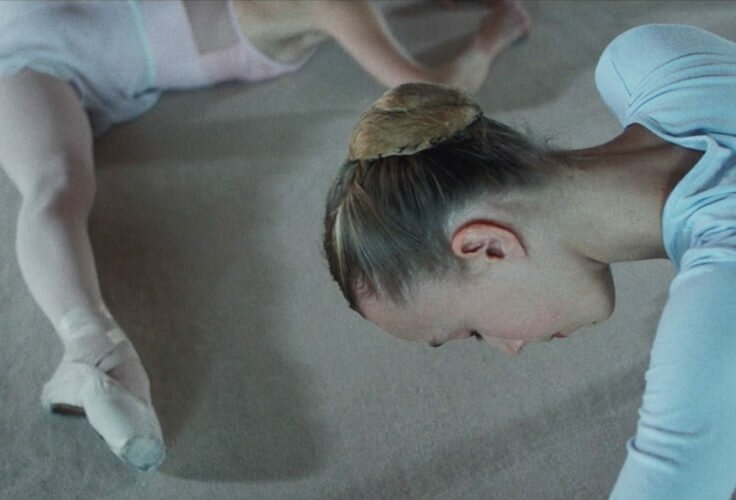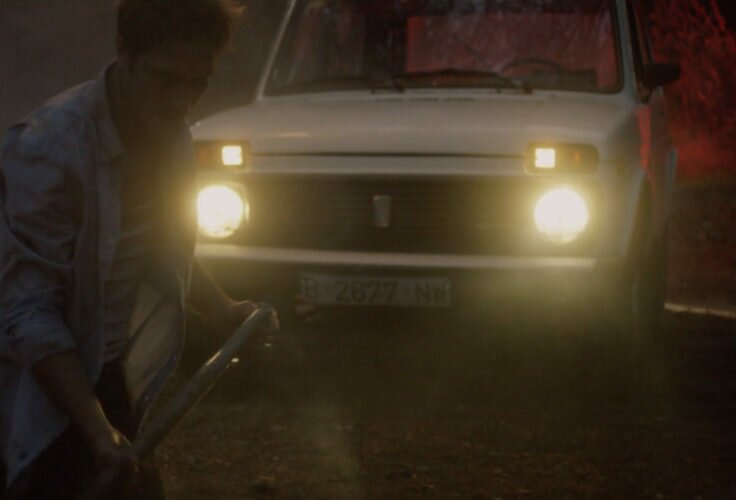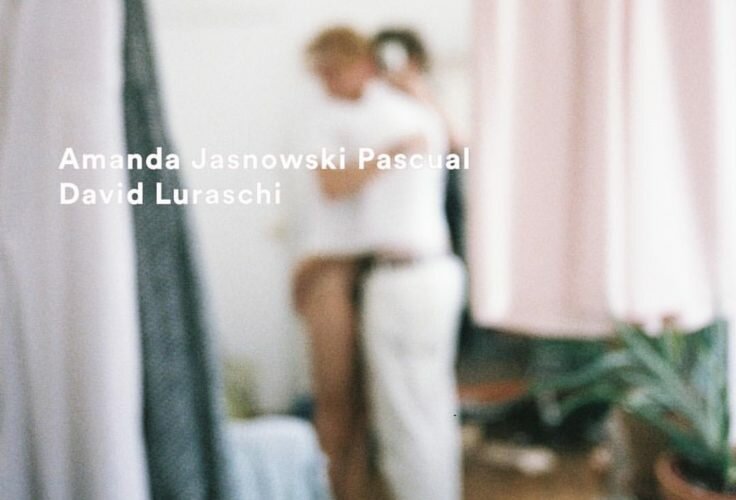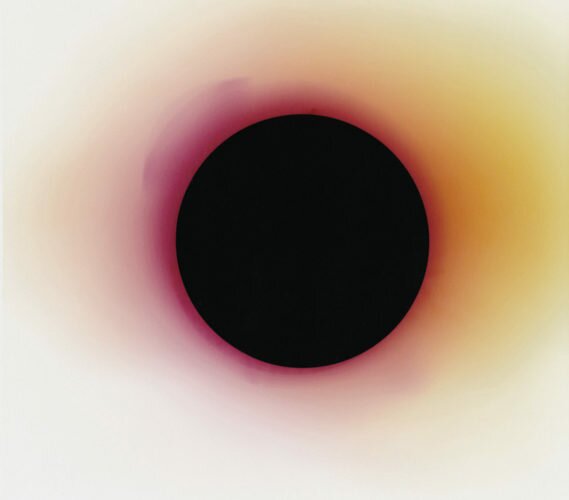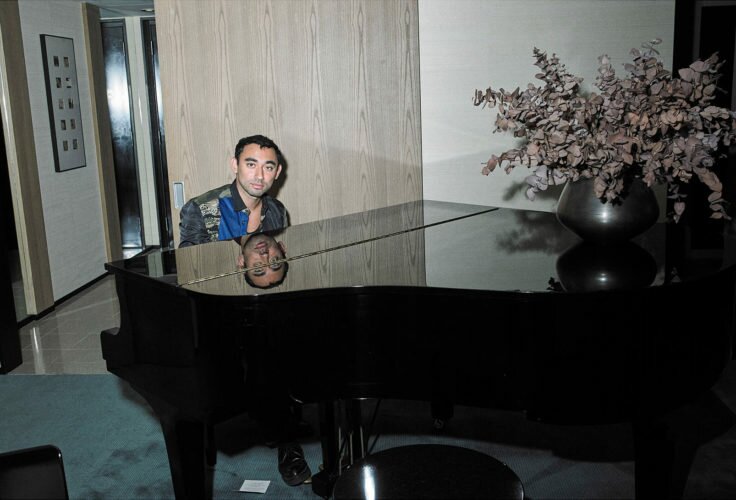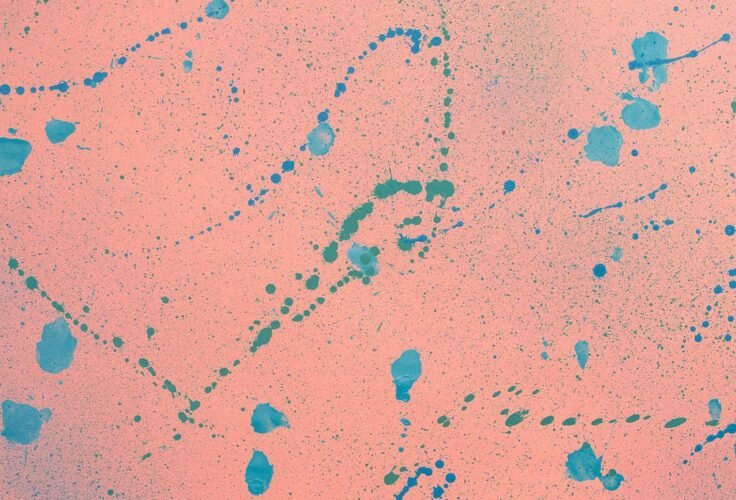What will we eat in the future? A sci-fi-gastronomic forecast by Mar Calpena in response to the answers of food futurologist Morgaine Gaye.

BY
MAR CALPENA
Illustration by Luis Mazón
Just as I was starting to write this text I felt the urge to look for Basil Poledouris’ Conan soundtrack in Spotify. I’m sitting at the table of a shabby table of a community centre or student flat, at the beginning of the nineties, throwing ten-faced dices, about to reach an inn along with other adventurers; there, a mysterious wayfarer will offer us money to go and find out what happened to the treasure of a certain dwarf king. I’m half rohirrim, half dunlendine, and although I’m not bad at unlocking locks and riding horses and I’m pretty, nimble and clever, I see the world as a hostile place and have problems when it comes to socialising. In these two last aspects, my character, Igrayne, is not very different from me. The ‘me’ I’m referring to is twenty-something-year-old Mar who studies Information Sciences and Journalism at the UAB. Back then I wasn’t even remotely pretty or nimble, had only seen a horse on TV, had been given the keys to my flat only four days earlier (a flat in what is probably the most boring neighbourhood in Barcelona), but I knew I was playing something you could win at if you were clever. And, yes, that I was indeed.
Unless one decides to embark in the exercise that David Carr decided to embark on with The Night of the Gun, in which he went to verify with all the people who knew him during his drug dealer past what had happened during a concrete night of 1988, it’s inevitable to distort the past. So this text will necessarily move between two discourses, which coincide too -I think- with the ones that society applies to role-playing games and, more widely, to freaks and nerds in general. I will switch between the ‘we were misfits sublimating our neuropathies’ and ‘before the Internet, before fantasy became mainstream, before people talked about transmedia and hypertexts, we were already there and everything was amazing and fantastic’. I no longer speak with some of my sources; others have died, and with the rest, I haven’t spoken about games in years. Who cares? It’s my past and I will reconcile with it any way I want to.
I’ve already told the official history of role-playing games to parents, friends, colleagues, readers and academics several times: born as a kind of variation of war and strategy games in 1974, they have two seminal names, Gary Gygax and Dave Arneson’s. If in war games the player controls typical army units (brigades, squads, divisions), in the first rules of the game created by Gygag and Arneson, called Chainmail, the basic unit was a single player. Gygax was very interested in games in which it was not necessary for a player to lose so another could win, and he started thinking about giving each player different goals during a game to make them collaborate. This gave way to the figure of a ‘master’ (or ‘dungeon master’), who was at the same time referee and show runner of each story. The characters, the game’s basic unit, improved their skills with time and experience. Besides, the epic fantasy book, with the revisiting of Lord of the Rings or the appearance of sixties sagas like Michael Moorcock’s Elric of Melnibone, Ursula K. LeGuin’s Earthsea, or titles such as Michael Ende’s The Never Ending Story provides scenes far removed from the spartan sobriety of war game campaigns.
Chainmail soon becomes Dungeons & Dragons. Here, the success came somewhat late and in different waves. First were the TV cartoons called Dragones y mazmorras (Dungeons & Dragons), and also the Elige tu propia aventura (Choose your adventure) books in which the character could determine the turns of the plot -although most ended in the most terrible and abrupt deaths- and , which came with dices and character creations that highly improved the all round experience. And in 1985, Dalmau Carles launches in Spain the first edition of Dungeons & Dragons, the “”. I’m twelve years old, but one of my brothers is twenty-five, a war-game player and his sci-fi and fantasy library is one of the few refuges I have when I come back from a school where I feel like Bastian Baltasar Bux. I will never end up playing with him and his friends -what male young adult wants to put up with his tween sister in his leisure time?- but I will read and re-read those manuals. Up to the time when I start my career at university and there I begin to, finally, play role-games, many things will happen. Although the Dalmau Carles edition of Dungeons & Dragons was a commercial failure, it was the root of the proliferation of many groups of players, often united in clubs or associations, who bought the material abroad and spread it through photocopies and home translations. Besides, they started creating their own material: First, as adventures and scenes for already existing games; and later on as rules and universes. One of the most fruitful clubs will be Auryn, in Barcelona (disclaimer: later in this story I will become a member, and will stay there for almost a decade), from which will be born Troll, the first role-playing fanzine in Spain. The associations also organise conferences, and soon appears a publishing house that will be the framework of the rise and fall of the history of role-playing games in Spain in the nineties.
Joc Internacional. The name of Joc Internacional still provokes today, almost thirty years after its foundation, exasperation and nostalgia alike. Idea of a cunning toy marketing and sales representative, Francesc Matas, the company tried to buy the D&D license after Dalmau Carles’ failure, but when it proved unable to get it, it started publishing another type of material, like for instance La llamada de Cthulhu -which I dare to say was the best role-playing game ever- or the first role-playing game ever created in Spain, Aquelarre, by Ricard Ibáñez, which is still being re-issued. Aquelarre, by the way, became a landmark because it was a game that deliberately moved away from the classic wizard and dragon setting and offered a more, let’s say ‘Paul Verhoeven’ version of the Middle Ages. Joc, besides, created and nurtured the game market through special days and bi-monthly magazine . The history of role-playing in Spain would have been very different without Joc. And my life would have been to.
At some point during my first year of university I found there was a bunch of people who were going to participate in a role-playing game. Acquaintances of acquaintances, zygotes of friends, the way everybody is on their first year. I remember a game on the grass of the UAB and then the delirium. We would meet all the time, dices always at hand in case we had a moment to play. It wasn’t the only thing we did: we talked about English literature, listened to guitar bands (some even played in them), protested against the visit of Paco Lobatón to the Aula Magna, smoked joints in the Baltic flats of the Vila Universitaria, wrote pedantic papers on Semiotics, took our first steps in local media or fanzines… But soon we became ‘the role-players’ (and the girlfriends of the gamers, ‘role-player-widows’), so we became a gang (in my early twenties, and it was my first gang!). I was the only girl who appeared there not being anyone’s girlfriend, something that made me both proud and sad. In those pre-Google times we also treasured any piece of information we could find about our hobby. I read LÍDER magazine from beginning to end. On the second issue I bought there was a job ad requesting an editor, and without thinking about it twice, I applied. I earned my first wages as a journalist: twenty five thousand pesetas per number. The truth is that, on the magazine, the editors -few and friendly, but who never ever played a single game together- had a great deal of freedom when it came to what we wanted to cover and how we wanted to treat it. They allowed me to prepare a dossier on paganism and Saint John’s Night, or a Barcelona setting for dark and post-punk Vampiro: la Mascarada (published by La Factoría de Ideas, an imprint which appeared in 1993, and which along others as Ludotecnia, Farsa’s Wagon or M+D Ediciones formed a second wave of publishing houses, many of which started to produce their own stuff). Conferences were organised, clubs appeared (apart from playing at university I was a member of Kritik and above all Auryn) and I was even allowed to do a TV programme for Canal 39, the predecessor of BTV, the VHS tapes of which I hope will never see the light of day, which was produced in such scarce conditions that they would make the child Baird cry. I wasn’t the only one: as far as I remember there were also several radio programmes and even a digital fanzine that was passed on in floppy disks. And studies, games played by post, general press articles… It almost seemed as if role-playing games could achieve a certain degree of legitimation as an art form.
But in April 1994 we get the first massive blow. Two guys kill a cleaner in Madrid. They say they were inspired by a role-playing game of their own creation, Razas (although later on they will confess the crime had nothing to do with such games). And the media witch hunt starts. All of us who played at the time had to explain to our worried parents why we carried about books that resembled grimoires or included long lists of arms. In my case, the immediate consequence was the loss of innocence with regards to my chosen future profession: how could it be possible to read reports, some by my own professors, with invented details and absolutely deranged value judgements? Weren’t we all Woodward and Bernstein reincarnated?
The second blow was apparently less brutal, but it would prove more destructive in the long run. Conferences, such as the Día de Joc organized by Joc Internacional, played an important role when it came to articulating and socialising gamers from all over the country, who often saw each other once a year and kept in contact through phone and letters. Lots of people attended them, there were live role games (that is, in which the action didn’t take place on the table, but with players dressed up as their characters), and new products were presented. One year I saw two friends playing a card-game non-stop. The game in question was fast and collectible, and it allowed for a rivalry between players unparalleled at the moment. It was called -it is called- Magic: The Gathering, and if it was the opposite if what role-playing games supposed, it posed nevertheless a huge success among the same target. To play a role-playing game you needed a long preparation of the story, and to coordinate all the players. And role-playing was per se a rotten business, because once you had the manual with each game’s basic rules, it was possible to create your own ambiences and adventures for free, while with Magic there was always a more powerful card to get, a quicker game to play, a centilitre of testosterone more to put on the table.
Role games and cards co-existed for some years, but the boom of Magic -that no one saw coming- obliged Matas to look for alternatives and use most of Joc’s money in a card game, the Lord of the Rings Game, that proved a catastrophe. Maybe the last stroke came, however, from the Internet. In the net, the way to play -and even the possibility of adopting other identities, of living other lives- became mainstream. The Internet brought about also the legitimation of the freak, and the end of business when the traffic of photocopies became an exchange of PDFs. Besides, seeing Star Wars or reading Lord of the Rings are activities today only carried out by your and my mum, and probably that’s for the better. I kept on playing, limping, until the end of the nineties, but other things -working and going out, mainly- were becoming more and more important in my life. However, like many of the ones who played at the time, the club as a social space occupied a very important place in my life. From it emerged more jobs, some boyfriends, friendships… but it got to a point in which everything started to feel more artificial than the fantasy lives I lived there. The sector’s industrial landscape also changed. Some tried to retrieve Joc Internacional’s lost licenses, others decided to call it quits and devote themselves exclusively to cards and role-playing games. I worked for some of these imprints a couple of times, as editor or press officer, but making your hobby a profession usually entails a disappointment. What was left, what was I left with, of nineties role-playing games? I think the amount of material produced at the time, with the most absolute lack of pretension, is good even for all of those thinking about playing today for the first time. I, apart from tangible benefits, am left with the lives I lived. As explorer of Middle Earth and post-teenage angst girl. I’m no longer any of them, but both were inside me. When we were legends.



